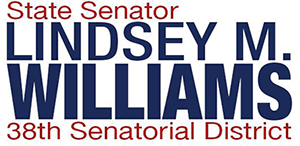The Department of State requested and received a temporary limited suspension of the Pennsylvania statute which requires physical presence of notaries for all notarial acts relating to a statement or signature on a record.
Because of the potentially fatal nature of COVID-19, particularly for older persons, trust and estate attorneys have been inundated by requests to provide clients with legal instruments relating to end-of-life planning. Many people are frightened by the prospect of not being able to rely on others to handle their affairs if they become incapacitated.
Yet, it is increasingly difficult for attorneys to meet with their clients. Many seniors, and particularly those with medical conditions, are obeying the president and the governor and are limiting exposure to other people. Some clients are in nursing homes where no visitors are allowed.
Several types of documents used in estate planning require notarization. Some do not require notarization under law, but the best practices of attorneys utilize notarization for these documents.
• Documents that require notarization
- Powers of attorney (20 Pa.C.S. § 5601)
- Self-executing wills (20 Pa.C.S. § 3132.1)
- Temporary guardianship (23 Pa.C.S. § 5621)
• Documents that do not require notarization, but notarization is best practice.
- Advance health care directives/health care powers of attorney (20 Pa.C.S. § 5452)
- Living wills (20 Pa.C.S. § 5442)
- Standby and temporary guardianship (23 Pa.C.S. § 5611)
For all the above documents, notaries may use audio-visual communication technology as an alternative to personal appearance. However, notaries must execute the notarial acts in accordance with all other requirements of the
Revised Uniform Law on Notarial Acts (RULONA). The safeguards included in the Uniform Law Commission amendments to RULONA and the recent Remote Online Notarization legislation introduced in Pennsylvania will be required. These safeguards include multilayered identity verification, use of tamper-evident technology and an audio-video recording of the notarial act.
Therefore, all notaries who are using audio-visual communication technology as an alternative to personal appearance must:
- become an approved Pennsylvania electronic notary (free application)
- use an e-notary solution already approved by the Department that offers remote notarization technology. These include: Doc-Verify, Safe-Docs and Pavaso
- indicate in the notary certificate that the notarial act was performed by means of communication technology. The following statement will satisfy that requirement: “This notarial act involved the use of communication technology.”
